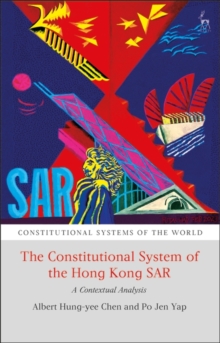
The Constitution of Japan : A Contextual Analysis PDF
by Professor Shigenori Matsui
Part of the Constitutional Systems of the World series
- Information
Description
Japan boasts the second largest economy in the world and almost two thousand years of history.
Yet, its first modern constitution, the Meiji Constitution, was not enacted until comparatively recently (1889).
Since then, following World War II, Japan adopted its current Constitution, the Japanese Constitution of 1946.
This book is designed to explain the outline of Japan's Constitution, together with a number of its unique characteristics and to offer an historical background and context which help explain its significance.
Major topics covered include the constitutional history of Japan, fundamental principles of the Constitution, the people and the Emperor, the Diet and legislative power, Cabinet and executive power, and the Judiciary and judicial power.
Also discussed is the protection of fundamental human rights, individual rights - including freedom of expression,economic freedoms, and social rights - pacifism and national defence, and the constitutional amendment and reform.
Although the Japanese Constitution was enacted under the strong influence of the United States Constitution, many of its features are very different.
For instance the existence of an Emperor, the long dominance of a conservative party over the Government, the relatively strong power of government bureaucrats, the absence of a leadership role in the Prime Minister, the small role the judiciary play in solving constitutional disputes and the struggle over national defence.
Written in an accessible style and comprehensive in content, the reader will find this account of the constitutional law of Japan both unique and stimulating.
Information
-
Download Now
- Format:PDF
- Pages:324 pages
- Publisher:Bloomsbury Publishing PLC
- Publication Date:30/11/2010
- Category:
- ISBN:9781847316110
Information
-
Download Now
- Format:PDF
- Pages:324 pages
- Publisher:Bloomsbury Publishing PLC
- Publication Date:30/11/2010
- Category:
- ISBN:9781847316110



